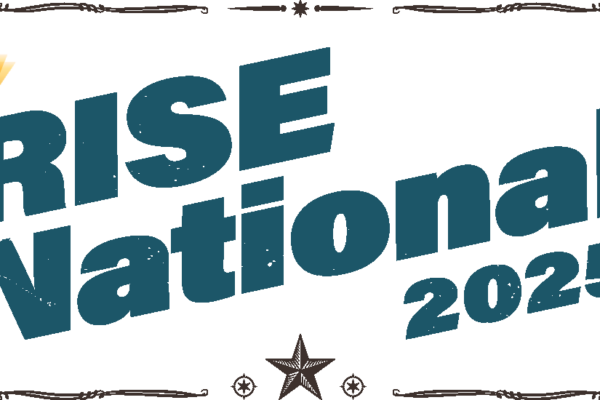The Best Polkadot Chocolate Brands to Try in 2024
Polkadot chocolate: it’s not just a confectionery, it’s an experience. The vibrant, eye-catching designs combined with the sweet, creamy taste make this delightful treat a favorite among chocolate lovers worldwide. As 2024 approaches, many chocolate brands are capitalizing on the whimsical charm of polka dots, incorporating this playful pattern into their products to create an even more indulgent experience.
If you’re a fan of unique, fun chocolates that bring a burst of color along with rich, decadent flavors, you’re in for a treat. Here’s a look at some of the best polkadot chocolate brands you’ll definitely want to try this year!
1. Polkadot Chocolate Co.
First on our list is the original innovator—the Polkadot Chocolate Co. This brand has perfected the art of creating chocolates that are as much a visual experience as they are a culinary one. Known for its high-quality, ethically sourced ingredients, the Polkadot Chocolate Co. uses premium cocoa beans to create its smooth, rich chocolate bases. Their signature polka-dot design features brightly colored dots of white or milk chocolate embedded in a solid dark chocolate bar.
In 2024, Polkadot Chocolate Co. is releasing an exclusive line of seasonal flavors, each with its own set of creative, color-popping designs. Think: pistachio caramel polkadot chocolate, spiced raspberry truffle with bright red dots, and a coconut mocha variation. The playful dots aren't just for show—they offer a delightful crunch and added texture to each bite.
Why You Should Try It: Polkadot Chocolate Co. delivers the perfect mix of quality and creativity. The combination of rich flavors and the eye-catching appearance makes it an instant conversation starter and a must-try treat for any chocolate lover.
2. ChocoDot Creations
ChocoDot Creations is a rising star in the polkadot chocolate scene. This artisanal brand has quickly earned a reputation for its creative take on polka dot designs. ChocoDot Creations not only focuses on the visual appeal of its chocolates but also prides itself on using organic ingredients, making it a great choice for health-conscious chocolate lovers.
The brand’s polkadot designs are unique, with each dot resembling miniature art pieces. ChocoDot offers a variety of polkadot-infused bars, ranging from classic milk chocolate with rich caramel to adventurous flavors like lavender-infused chocolate with lemon dots. Their limited-edition collections for holidays such as Valentine's Day and Easter also feature whimsical dots in pastel shades and even gold glitter!
Why You Should Try It: ChocoDot Creations is ideal for those who appreciate a balance of beauty and flavor, with a focus on organic and ethically sourced ingredients. Their innovative combinations and limited-edition releases will keep you coming back for more.
3. Dotty’s Chocolate Factory
Dotty’s Chocolate Factory offers a charming twist on polkadot chocolate. Their products are hand-crafted and made with care in small batches, ensuring every bar has a unique touch. Dotty’s chocolates stand out due to their creative and vibrant use of colored polka dots, which come in various sizes and patterns depending on the flavor.
In 2024, Dotty’s Chocolate Factory is pushing the boundaries of creativity with flavors like matcha raspberry, wild blueberry swirl, and their signature sea salt caramel chocolate with bright turquoise dots. They also offer dairy-free and vegan options, so everyone can enjoy the colorful fun.
Why You Should Try It: Dotty’s takes the concept of polkadot chocolate to a new level with its bold, imaginative flavors and artistic designs. The hand-crafted, small-batch production guarantees you’ll be tasting something truly special.
4. ChocoDots Boutique
ChocoDots Boutique is perfect for those who are looking for a luxurious polkadot chocolate experience. This brand combines premium Belgian chocolate with unique fillings and eye-catching designs. Each bar of ChocoDots is meticulously crafted, with perfectly placed dots of contrasting chocolate to enhance both the flavor and aesthetics.
For 2024, ChocoDots Boutique is introducing several sophisticated flavors, including spiced cinnamon with orange dots, salted caramel with dark chocolate dots, and a decadent white chocolate and raspberry combination. ChocoDots also offers chocolate-covered polkadot truffles, which are a real treat for anyone looking to indulge.
Why You Should Try It: If you're looking for luxury and elegance, ChocoDots Boutique provides the perfect blend of exquisite flavors and stunning presentation. It’s a chocolate lover’s dream come true, particularly for those with a refined taste.
5. Polka Delight Chocolates
Polka Delight is all about fun and nostalgia, making it the perfect brand for those who want to relive the joy of childhood with a sophisticated twist. Known for their creative use of milk and dark chocolates, Polka Delight incorporates soft, melt-in-your-mouth centers that complement the polka-dotted exterior.
In 2024, Polka Delight is launching a "DIY Polkadot Chocolate Kit," which allows you to create your own customized polkadot chocolates at home. Choose your favorite chocolate and fill it with caramel, hazelnut cream, or even marshmallow fluff. It's an interactive and sweet way to make your chocolate experience even more personal.
Why You Should Try It: Polka Delight offers an interactive, hands-on chocolate experience that appeals to both kids and adults. Their new DIY kit will surely add a playful, creative element to your chocolate indulgence in 2024.
6. DotChoc Delights
DotChoc Delights stands out in the market for its incredibly smooth chocolate and distinct flavor profiles. They focus on creating polkadot-inspired chocolates with layers of creamy fillings, allowing for a burst of flavor with each bite. Whether you’re a fan of traditional milk chocolate or dark chocolate, DotChoc offers a wide range of options to suit your taste.
For 2024, DotChoc is unveiling a polka dot shroom bars chocolate with a surprise filling—creamy hazelnut butter with crunchy caramelized hazelnut pieces, all wrapped in smooth milk chocolate. They’re also debuting a new vegan line with coconut cream filling and vibrant pink strawberry dots.
Why You Should Try It: DotChoc Delights caters to all chocolate lovers, from traditionalists to those with dietary preferences. Their emphasis on smooth texture and delightful surprises inside the chocolate makes each piece an exciting discovery.
Conclusion: Indulge in the Colorful World of Polkadot Chocolate in 2024
Polkadot chocolates bring a sense of joy, whimsy, and decadence that make them stand out from the typical chocolate bars on the market. Whether you’re in the mood for a luxurious, sophisticated treat or a fun, creative experience, these polkadot chocolate brands have something for everyone. From bold flavors and stunning designs to sustainable ingredients and new ways to experience chocolate, 2024 is shaping up to be an exciting year for polkadot chocolate lovers.
So go ahead, treat yourself to something sweet, colorful, and delightful—these brands are ready to turn your chocolate dreams into a delicious reality.


